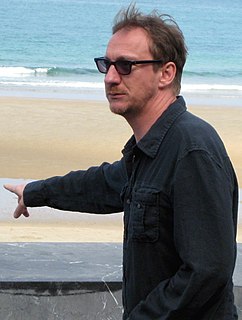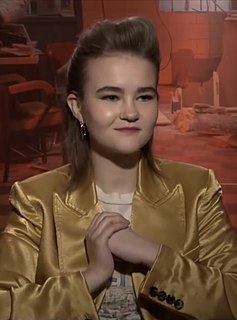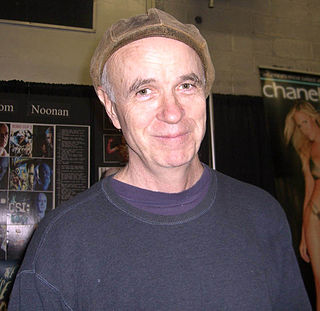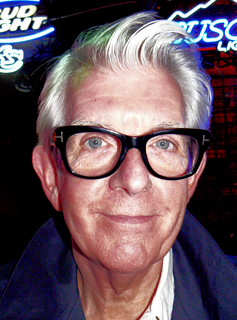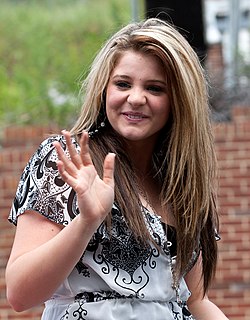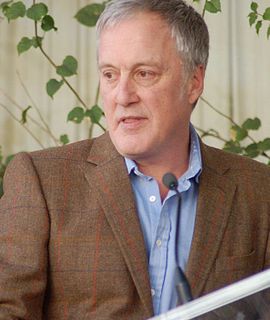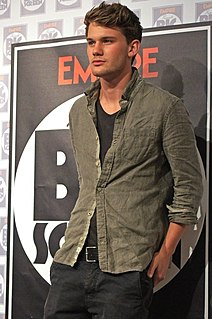A Quote by David Thewlis
I had no idea how one became an actor. I didn't know things such as drama schools existed. It all just sort of happened accidentally.
Related Quotes
I just sat there looking at television, sort of dumb and thought how horrible it was. I had -- the grand aspects of it did not occur to me -- I had no notion of this terrorist network that existed. I knew the were a lot of people in the world who didn't like us, but I had no idea that it was as well organized as it apparently is. That's one of the amazing facets of this terrible event: how well they did it. Incredible. The competence of these evil people.
I have no idea how I do anything. I never have. You know I just started playing guitar and started singing and started working on this act that I would call "Don McLean" when I was probably in high school. And I have been doing this for 40 years, adding songs and writing things, cobbling together albums, doing live things, you know, albums and tours. And then I have records on the charts. I have no idea how this happened.
. . . the whole idea of WHAT HAPPENED WAS.... is not about dating. It is more about people who are not committed to who they are or are indifferent about their life in general, which is how I felt about myself when I wrote it. I had turned 40 and I was unhappy and I wanted to write about that. Dating just became the framework. . . . I like all those fringy, weird, nonverbal, quiet, tiny little things, those powerful interchanges between people, things that go unsaid, that people know are happening all the time but nobody wants to talk about. That's what I want to make movies about.
And religious music and the sort of symbolism of it and everything. But I had this idea. Actually, I sort of dreamt it. I woke up - just before waking up one morning, I sort of dreamt this song or the idea of it and the first little bit of it. And I jumped out of bed and I thought, well, you're still asleep. You're going to forget this in a minute - you know, like you do when you've had a dream.
I wanted to become an actor. I went to Guildhall School of Music and Drama, which is one of the main drama schools in London where you go when you are older. But I was doing the junior one when I was a kid. And some friends there had agents. I was fourteen and I was like, "I want an agent! It sounds awesome!" I had no idea what that was. I thought those guys looked like men in black. They were hanging around in suits all the time. So I luckily got a very good agent in London and started auditioning. And then when I was 16, I got my first film and I've been working ever since.
Acting became important. It became an art that belonged to the actor, not to the director or producer, or the man whose money had bought the studio. It was an art that transformed you into somebody else, that increased your life and mind. I had always loved acting and tried hard to learn it. But with Michael Chekhov, acting became more than a profession to me. It became a sort of religion.
I could draw ideas. I remember writing a paper for a seminar class. I remember writing a paper about - and this is going to sound really sort of pretentious, but that's where my mind was at the time - how acting and the performing artist can really be like a Bodhisattva, how they can communicate ultimately an idea in a way that can move and shift things. And that was wonderful. I didn't know many classes where I could try and relate the thing that I really loved and wanted to do into an intellectual idea, and that happened to be one of them.
The Work reveals that what you think shouldn't have happened should have happened. It should happened because it did, and no thinking in the world can change it. This doesn't mean that you condone it or approve of it. It just means that you can see things without resistance and without the confusion of your inner struggle. No one wants their children to get sick, no one wants to be in a car accident; but when these things happen, how can it be helpful to mentally argue with them? We know better than to do that, yet we do it, because we don't know how to stop.
